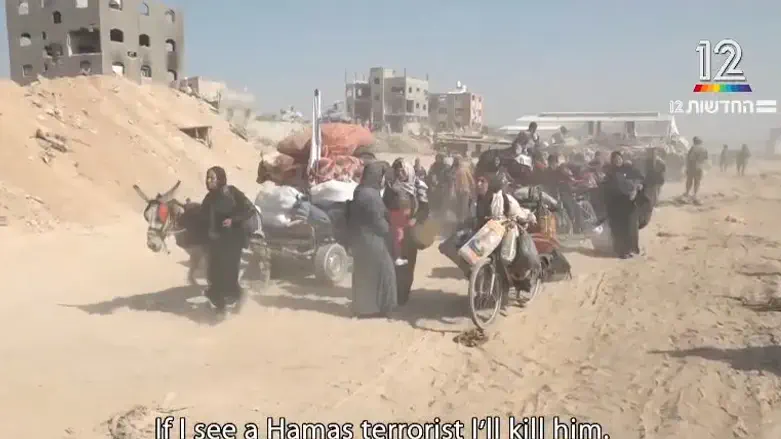
In the wake of the latest developments in Gaza, where Israel has rejected Hamas’s offer for a partial hostage release, many are left wondering: why can’t the war just stop? Why can’t both sides agree to a ceasefire and return to how things were? The painful truth is that conflicts, especially those as entrenched as the Israeli-Palestinian one, don’t have a simple “off switch.”
Hamas’s latest proposal, delivered via backchannel communications with the United States, offered to release five living Israeli hostages in exchange for Israel pulling its forces back to their positions from two months ago, full humanitarian access to Gaza, ongoing negotiations for the release of more hostages, and even a hint at some form of U.S. recognition of Hamas. Israel immediately rejected the proposal, calling it far from acceptable. Despite mounting international pressure and even statements from Donald Trump urging a swift resolution, Prime Minister Benjamin Netanyahu made it clear: a ceasefire would only come on Israel’s terms, primarily the unconditional return of all hostages and dismantling Hamas’s military capabilities.
This rejection might look like stubbornness, but it’s rooted in decades of mistrust and trauma. Ceasefires have been brokered before, only to be shattered by rocket attacks or military escalations. Hamas’s refusal to renounce violence and its history of using hostage-taking as leverage fuels Israeli fears that any pause in fighting would simply allow Hamas to regroup.
The hostage dilemma adds another layer. For Hamas, hostages are bargaining chips that not only pressure Israel but also elevate Hamas’s standing domestically and abroad. For Israel, however, negotiating under these terms risks encouraging future kidnappings. Governments worldwide grapple with this question: does saving lives today justify the possibility of more abductions tomorrow?
Then there’s the physical and political reality on the ground. The idea of simply “going back” ignores how radically Gaza has been transformed. Entire neighborhoods are in ruins. Infrastructure has been obliterated. Even if both sides stopped fighting today, the humanitarian issue wouldn’t vanish.
International dynamics complicate matters further. The U.S., Egypt, Qatar, Russia, and others all have vested interests in the conflict’s outcome. Each actor brings its own agendas, alliances, and constraints. The U.S. facilitating Hamas’s proposal shows how layered these negotiations are. A ceasefire isn’t just between Israel and Hamas; it’s a complex balancing act involving multiple players with conflicting goals.
But perhaps the hardest truth is this: there may be no way back to the pre-war status quo. The October 7, 2023 Hamas attacks, which killed over a thousand people and shattered public confidence, were a national trauma for Israel. Many Israelis now see the idea of coexisting alongside an armed Hamas in Gaza as not just risky but unacceptable. On the Palestinian Arab side, the devastation and loss from the current war are likely to fuel further radicalization.
Humans naturally crave closure and happy endings. We want to believe that leaders can shake hands, declare peace, and reset the clock. But real-world conflicts, especially ones rooted in history, identity, and survival, aren’t solved that way. Wars don’t just stop because one side says they should. Trust needs to be rebuilt. Root causes must be addressed. Viable political and security frameworks have to be created. These are not quick fixes.
Moreover, leaders on both sides face domestic political pressures. Netanyahu’s government, facing internal and external critics, is unlikely to agree to a deal perceived as a Hamas victory. Hamas, in turn, cannot afford to appear weak or to accept terms that erode its standing. This creates what experts call an “escalation trap,” where both sides feel compelled to continue fighting for their own reasons.
So where does that leave us? The grim reality is that simple solutions are illusions. Ending this war requires multilateral engagement not just between Israel and Hamas, but also with regional powers and the global community. It demands a long-term vision that includes security guarantees for Israel, political and economic revitalization for Gaza (although relocation is preferable for the 49% of Gazans who wish to emigrate, ed.) and brave leadership willing to make painful compromises. Grassroots efforts, building trust from the ground up, will also be essential—through education, economic cooperation, and shared human experiences.
Amine Ayoub,a fellow at the Middle East Forum, is a policy analyst and writer based in Morocco. Follow him on X: @amineayoubx
